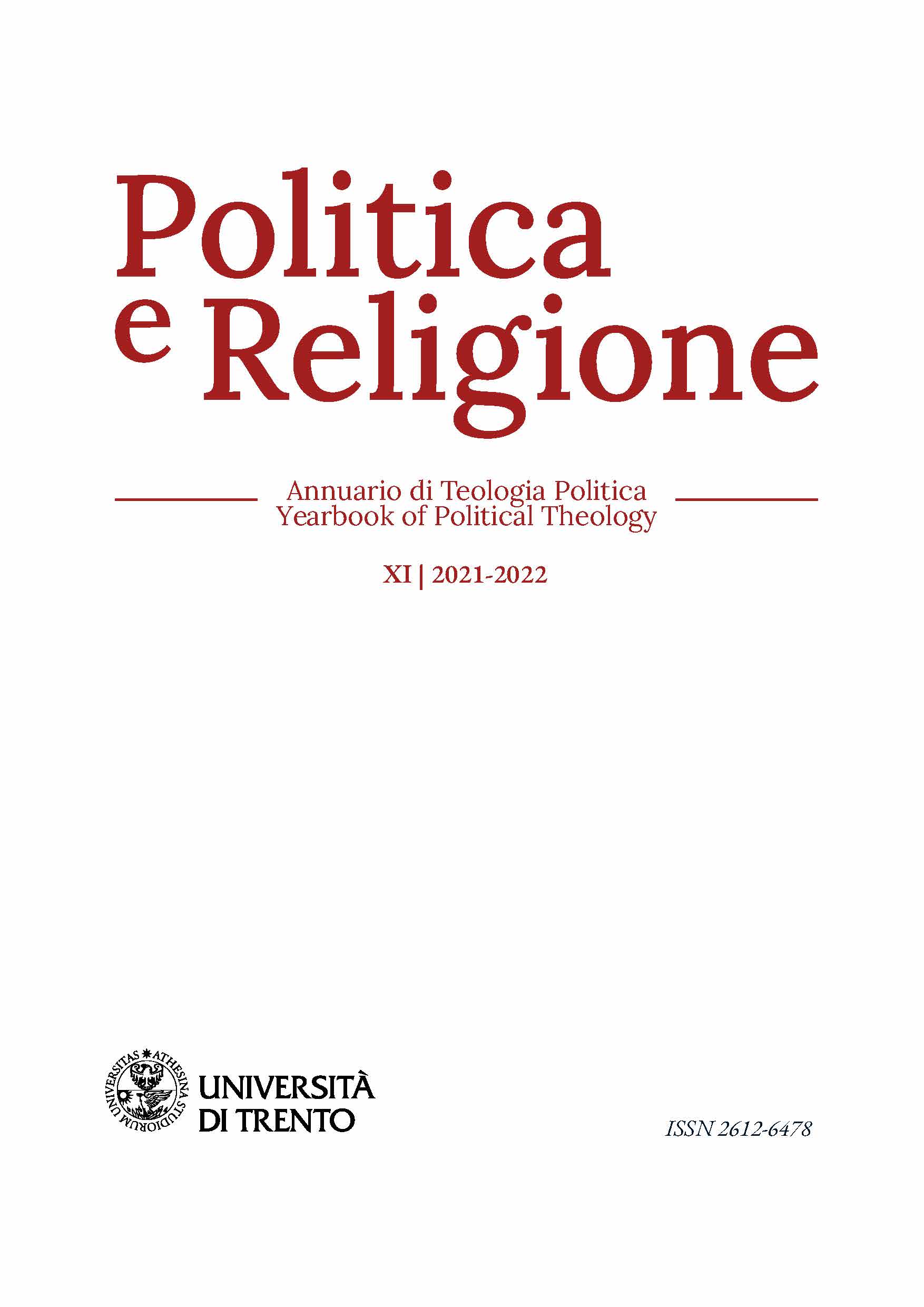Models of sovereignty and civil religions: a possible dialogue between the writings of Erik Peterson and Eastern Orthodox theologians
DOI:
https://doi.org/10.15168/per.vi2021-2022.3151Keywords:
erik peterson, eusebius of caesarea, civil theology, civil religion, sovereigntyAbstract
My paper focuses on Erik Peterson’s contribution to the classical debate on political theology, especially on his description of models of sovereignty: the divine monarchy model, the King of Persia Model, and the angels of the nations’ model, which form the basis of the Eusebian civil theology. Considering these models initially, I suggest a possible subsequent dialogue between Erik Peterson’s writings and Eastern Orthodox theology. Peterson’s focus on eschatology, ecclesiology, liturgy, and the Church Fathers makes his work relevant for the Orthodox tradition. In addition, his work critically confronts the frameworks of imperialism and nationalism, which represent the principal challenge for the Orthodox space. To a limited extent this discussion has already started, such as in the work of Cyril Hovorun, Pantelis Kalaitzidis or Christos Yannaras. However, a closer look into Peterson’s theological reflections, especially his deconstruction of the Eusebian model of symphonia based on a dogmatic reasoning, deserves further consideration. A critical assessment of the way religious language is used to construct models of sovereignty – first in the Hellenistic world, then later in the Roman Empire – lies at the heart of Peterson’s research. Questions of analogy and order and how religious narratives contribute to maintaining social bonding within a community, and thus the status quo, are central aspects of his work. Hence, engaging with Peterson’s ideas can provide useful insights for Orthodox theologians, who critically assess theological images and language adopted with respect to political realities.
Downloads
Published
Issue
Section
License
Copyright (c) 2024 Ana Petrache

This work is licensed under a Creative Commons Attribution-ShareAlike 4.0 International License.


